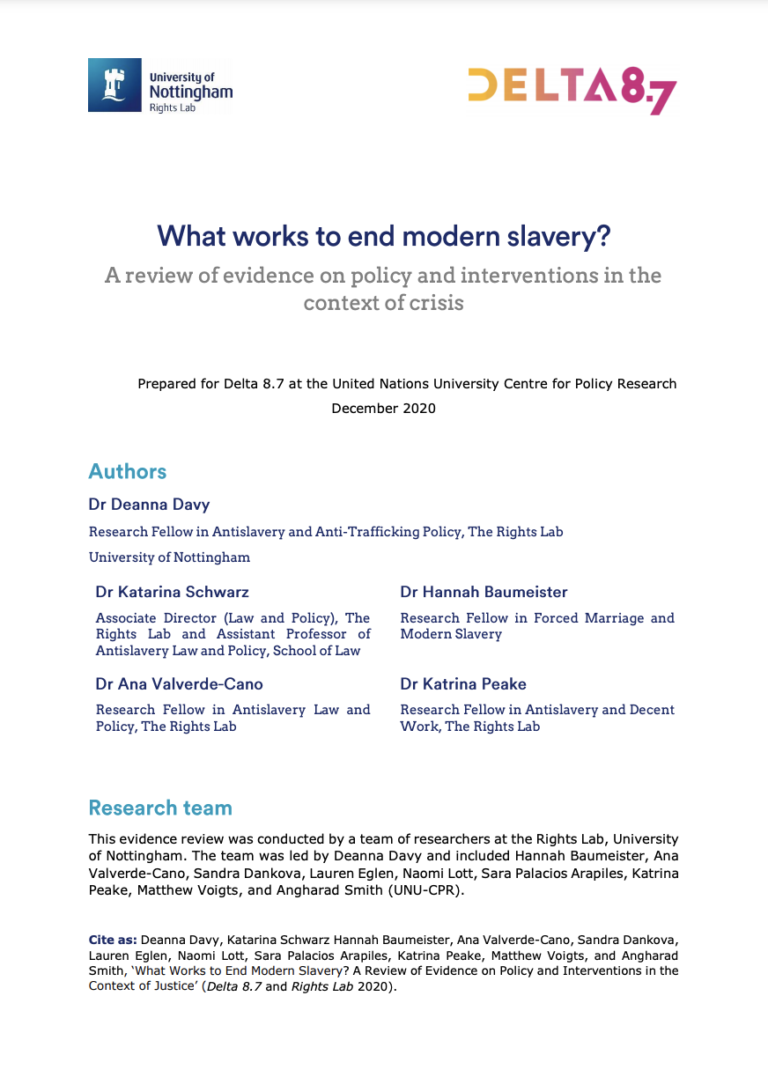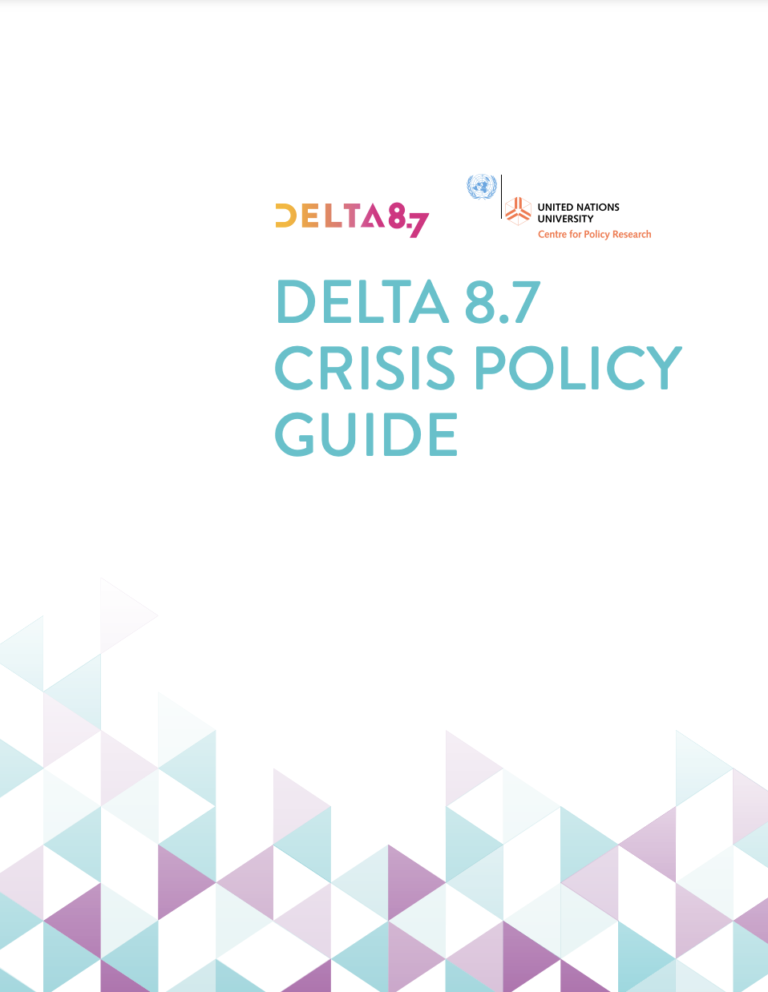Modern slavery thrives in crisis situations. During conflicts, natural and man-made disasters, and humanitarian situations, adults and children are vulnerable to exploitation and trafficking. Conflict situations often exacerbate existing vulnerabilities to slavery, as well as cause new forms of exploitation to emerge.
In crisis situations, people often have no choice but to migrate in order to survive. A key challenge in reaching a secure jurisdiction is that people on the move must often commit an immigration offence in order to reach safety. In fleeing across national borders, they become ‘irregular’ or ‘illegal’ migrants, and, due to their irregular status, are often denied access to government support mechanisms in transit and destination countries. Due to their irregular status, they are vulnerable to trafficking in persons in the destination country.
This report examines what is known about effective policy to achieve Sustainable Development Goal (SDG) Target 8.7 in the context of crisis, by: (1) collecting and collating existing evidence on what works; (2) identifying the range of hypotheses captured in academic and grey literature, and the evidentiary foundations of these claims; and (3) conducting mixed methods analysis of strengths, weaknesses, and trends in the evidence base. This report thus addresses the following question: What is known about works at the State and multinational policy level to address modern slavery in the context of crisis?
Click the link below to download this publication. You can also Delta 8.7 Crisis Policy Guide below.


